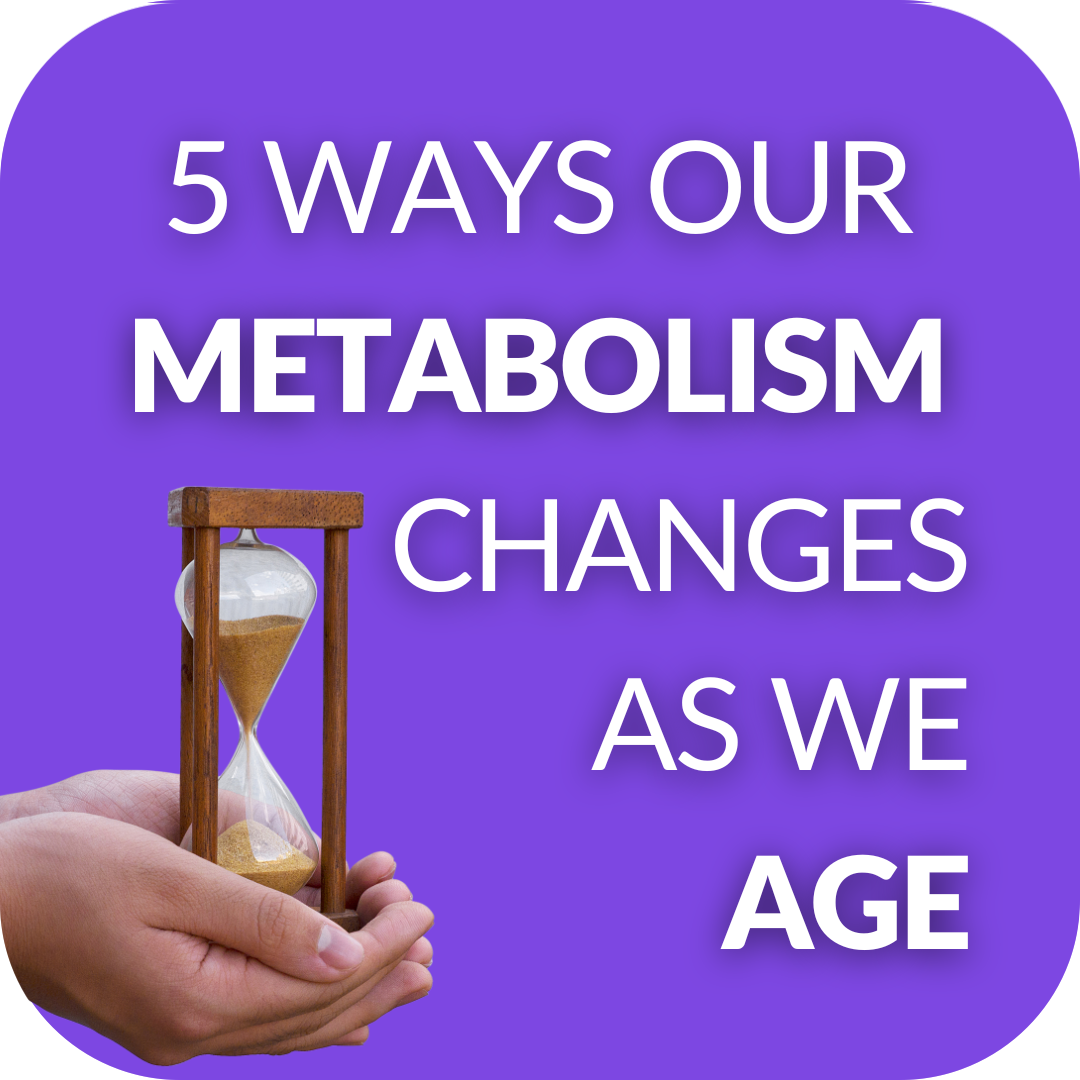
As we age, our metabolism naturally changes, impacting everything from our energy levels to how we store fat.
While this might sound concerning, understanding these shifts can empower you to make informed choices that support your health and well-being.
Here are five key ways your metabolism shifts after 50 and what you can do to adapt.
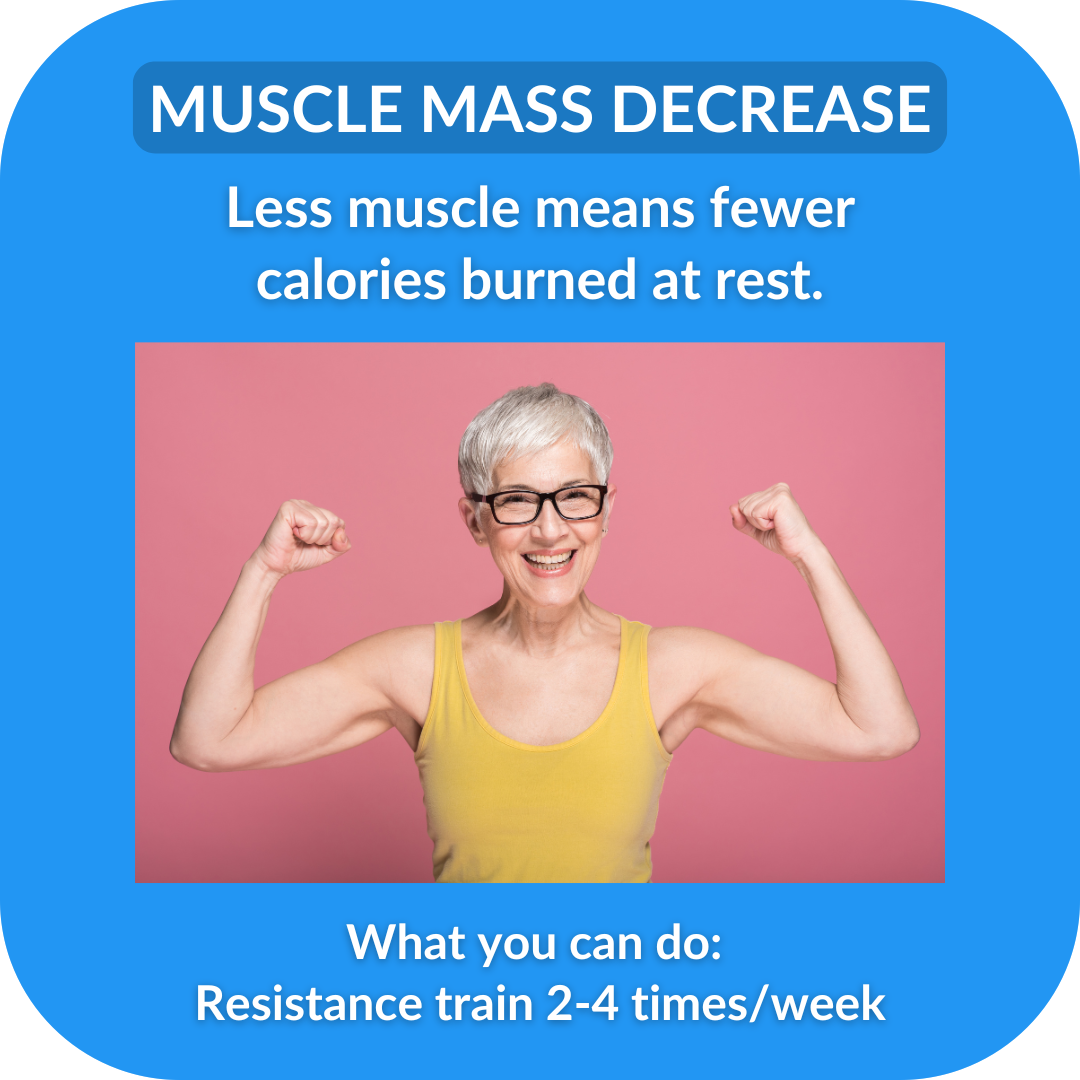
One of the most significant changes that occurs as we age is the decrease in muscle mass. Muscle is a metabolically active tissue, meaning it burns calories even when you’re at rest. As muscle mass decreases, so does the number of calories your body uses daily, leading to potential weight gain if your diet and activity levels remain unchanged.
To combat this, incorporating resistance training into your weekly routine is crucial. By working out with weights or engaging in bodyweight exercises like squats and push-ups, you can help maintain or even increase your muscle mass, keeping your metabolism more active and helping you feel stronger and more energetic.
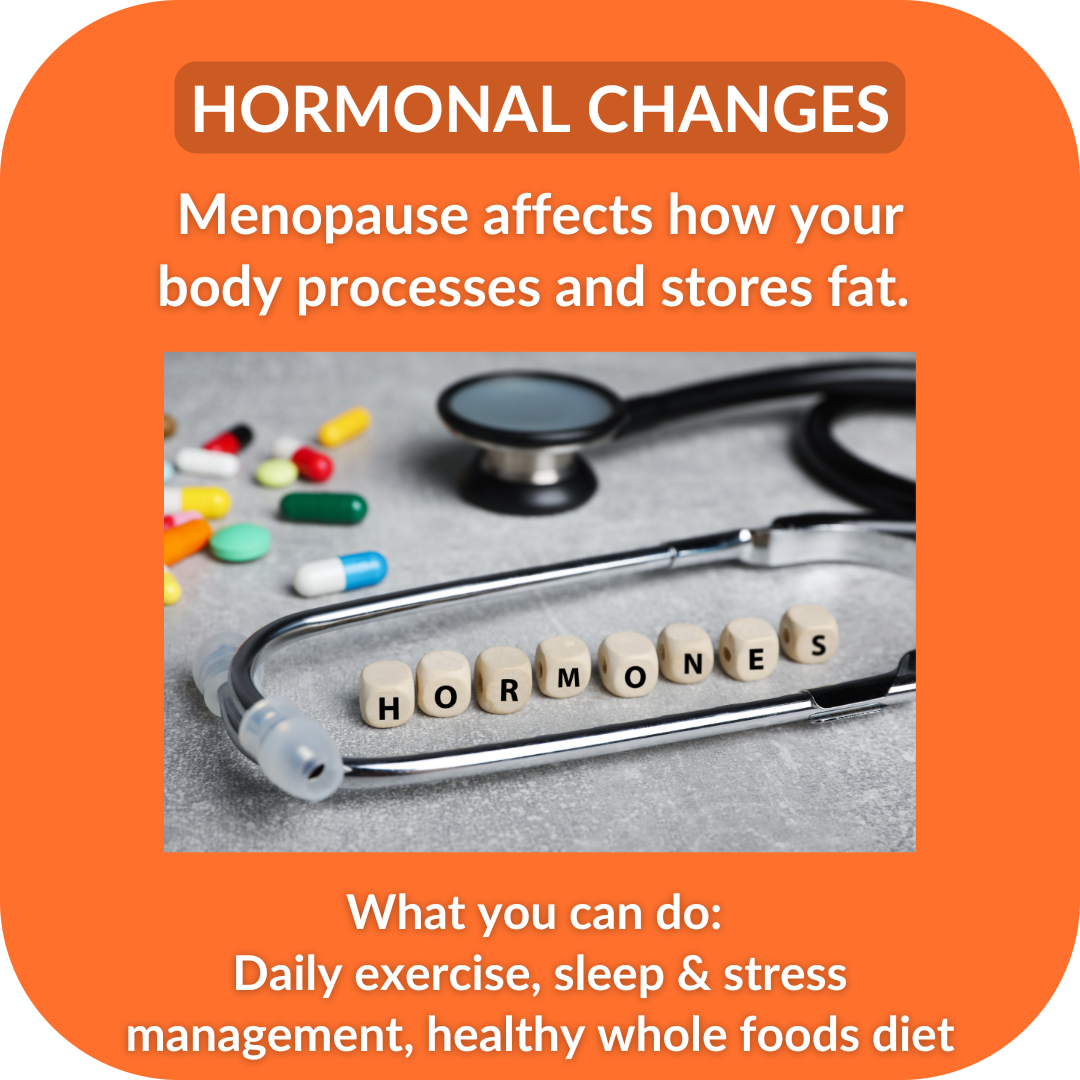
Hormones play a pivotal role in regulating your metabolism, and they change significantly as you age, especially during menopause. These hormonal shifts can affect how your body processes and stores fat, making it easier to gain weight, particularly around the midsection.
Managing these changes requires a holistic approach. Regular physical activity, particularly exercises that you enjoy and can stick with, combined with a focus on sleep, stress management, and a diet rich in whole foods, can help mitigate the effects of hormonal changes. This balanced approach supports your metabolism and overall well-being, keeping you feeling your best.
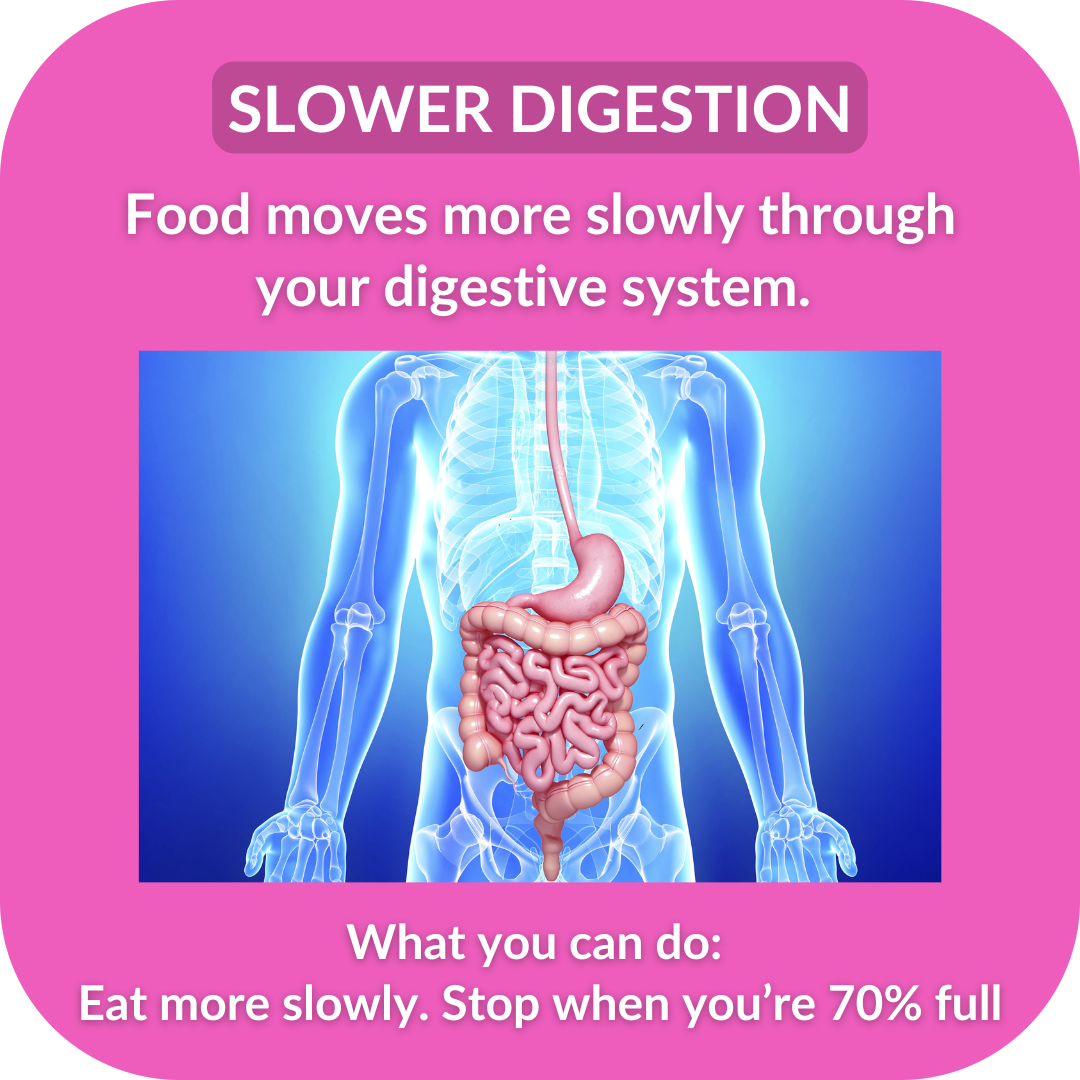
Another metabolic shift that comes with age is a slower digestive system. As the digestive tract slows down, food moves more slowly through the body, which can lead to bloating, discomfort, and challenges with maintaining a healthy weight.
Adapting to this change involves being mindful of how you eat. Eating more slowly and stopping when you’re about 70% full can help prevent overeating and promote better digestion. Additionally, focusing on a diet rich in fiber and staying hydrated can support digestive health and keep things moving smoothly.
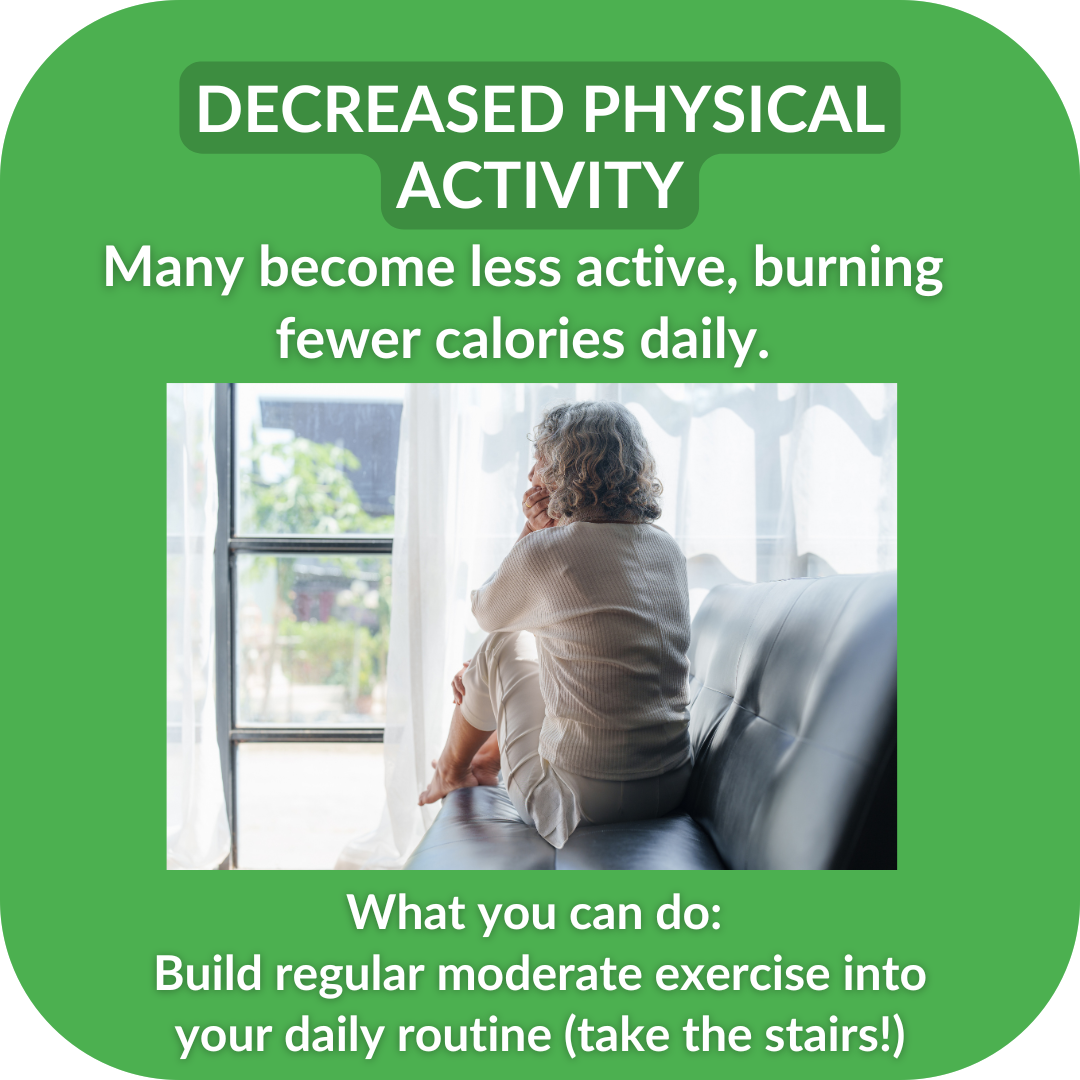
As life gets busier and priorities shift, many of us become less physically active as we age. This decrease in activity means fewer calories are burned each day, contributing to weight gain and a slower metabolism.
The solution? Integrating more movement into your daily routine doesn’t have to be complicated. Simple changes like taking the stairs instead of the elevator, going for regular walks, or engaging in a hobby that gets you moving can make a big difference. The key is to find activities you enjoy, making it easier to stick with them consistently.
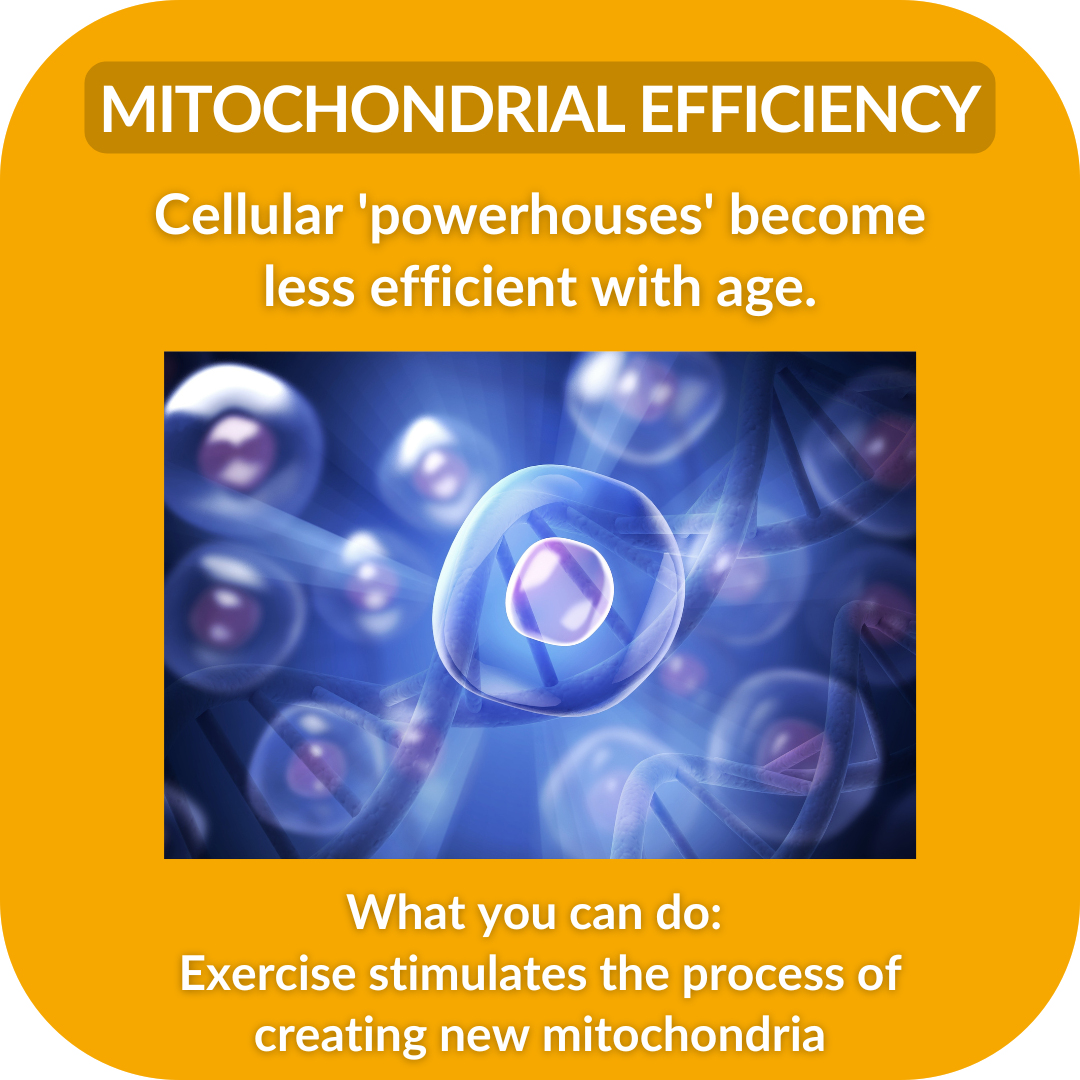
Mitochondria are the powerhouses of your cells, responsible for producing energy. As we age, the efficiency of these mitochondria decreases, leading to lower energy levels and a slower metabolism.
The good news is that exercise can stimulate the process of creating new mitochondria, boosting your metabolic efficiency. By staying active, you not only keep your metabolism running more smoothly but also enhance your overall energy levels, helping you stay vibrant and healthy.
Understanding how your metabolism changes with age is the first step toward taking control of your health. By making small but meaningful adjustments to your lifestyle, such as increasing your physical activity, focusing on strength training, and adopting mindful eating habits, you can keep your metabolism as active as possible, supporting your well-being for years to come.
This is not medical advice. If you have undiagnosed pain or are new to exercise, always consult a healthcare professional before starting this or any new program.
For more tips like this, follow me on social media!
Do you have an idea for a class you’d like to see? Is there a particular exercise you want to work on? Send me your request and I’ll do my best to incorporate it into an upcoming video. I’d love to hear from you!



Hello! Great article – thanks. Now at the other side of menopause my mid-section is definitely more present. Good to know that’s part of the aging process.
After being away from your workouts for a couple of years I’m so happy to be back!!